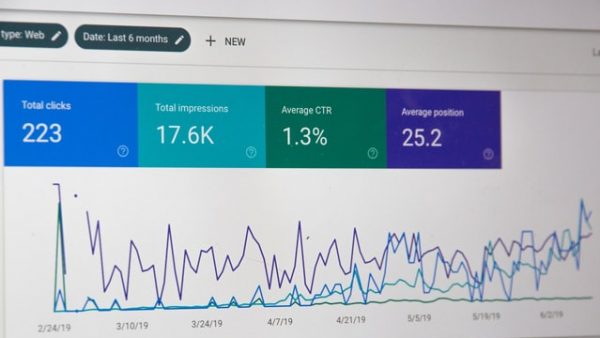 - minute read
- minute read
There are numerous ways of getting eyeballs on your website and viewing your property listings. Whether it’s through social media, paid advertising, affiliates, or good old-fashioned word of mouth, there are plenty of methods to choose from. Possibly the most powerful method of all is by ranking on a search engine such as Google, as this will greatly increase your chances of being seen by thousands of people for relevant search results. To help break this down, we’ve created a handy yet simple guide concerning SEO for letting agents.
Search engine optimisation is a form of marketing that aims to grow the visibility of a site through organic (free) search results. These search results are displayed in search engines such as Google and Bing.
Where SEO for letting agents is concerned, putting some time into this can help pages on your website rank for relevant search terms. These search terms could involve general industry terms, specific locations, or a combination of the two. For example, “letting agents near me”, “Nottingham properties to rent” or “letting agents Nottingham”.
Without going into too much unnecessary detail, Google crawls websites in order to discover the content that exists on them. Once Google has crawled a website and its pages, it then determines how relevant the information it provides is, and ranks these pages amongst those from other websites accordingly.

The single biggest benefit of SEO for letting agents (and it’s a really big benefit) is the additional traffic it can generate for your website(s). This traffic can then have several positive knock-on effects, including greater brand awareness and extra business.
Being able to get enough web traffic through SEO can also save your business on overheads, as many websites are forced to heavily invest in paid traffic to make up the deficit.
Keyword research is the starting point of just about any SEO activity, and this includes SEO for letting agents. A keyword is what you rank for when searching for something. For example, when searching for “letting agents West Midlands”, the top-ranking pages are those which Google has deemed to be the most relevant, useful and important surrounding that keyword.
There are numerous sites that can be used to conduct keyword research, including Google’s Keyword Planner (this is used through Google Ads), Keywords Everywhere, Ahrefs, and UberSuggest.
Put simply, the holy grail of keywords are those with high search volumes and low competition. These are often few and far between, so the next best thing is to target lower search volume but lower competition keywords which you stand a solid chance of ranking for on the first page of Google. Rather than picking “letting agents West Midlands”, pick a more specific location, such as “letting agents B74”.
Remember, all good SEO work starts with keyword research.

There are numerous tips and tricks for making your content seriously relevant for Google’s benefit (and that of your users).
Aside from creating amazing property listings to try and attract the best tenants, each time a property listing is uploaded to your site, it should be done so with all of the SEO guidelines we just discussed in mind. Title tags and headings need to be added to reflect the content of the page. What can really separate you from everybody else is taking the time to write unique property descriptions. These don’t need to be more than a couple of hundred words, but just having unique written content on every property listing will make a huge ranking difference. Google also tends to like property listings which include bullet points, as these allow the reader to quickly discover a property’s key features.
When it comes to SEO for letting agents, a great way to get ahead of your competitors is by doing what they aren’t. In this case, very few letting agents are producing multimedia content to help showcase their properties. Where Google is concerned, having video on your website is a big tick of quality.
Because an impressive 68% of people prefer watching videos to learn about new products or services, this type of content can increase the time people spend on your website which is another important ranking factor for Google.

Having a speedy website is crucial for a couple of reasons. Firstly, page loading speed is something that Google takes into account, meaning a slow load speed will be penalised. From a human perspective, using a slow website can be very frustrating and will likely result in people quickly clicking off. This is known as a ‘bounce’. Having a high bounce rate will lead to Google viewing your content as unhelpful or unsatisfactory.
Tools like Page Speed Insights will provide an indication of your page loading speed (scored out of 100), as well as some handy yet simple suggestions for improving this speed if necessary.
An internal link is one that points to another page on the same website. For example, a blog on your site about homes to rent in Nottingham could have internal links to specific property listings. Having links within your website are a really important yet often overlooked way of making your site structure clear to Google. They allow users to easily navigate a website, help search engines understand the website, and even allow ‘link juice’ to be sent from one page to another (meaning that ranking power is well distributed from page to page). Although, you should avoid overcrowding pages with links, as this will cause the links to carry less power.
An external link is one that points to a different website. External links are useful for providing the reader with additional information. Having lots of external links pointing towards a page is just about the most important ranking factor there is. Because of this, being able to get other sites (particularly trusted ones) to link to your own can make a huge difference.
Did you know that almost 60% of Google searches take place on mobile devices? Because of this, Google will penalise pages that aren’t optimised for mobile. Much like page loading speed, these unoptimised pages will also lead to users spending less time on them.
In essence, mobile optimisation requires you to check your pages through the lens of a mobile device to make sure everything is looking exactly as it should. This can become quite technical, so hiring somebody who specialises in SEO for letting agents may end up being the best option here.

In order to get a clearer picture of what is and isn’t working, Google Analytics is an excellent tool to use. This will allow you to view all sorts of stats and figures surrounding your website(s), including page views, how long users are spending on your website, user locations, page load times and more. Having this data available will help build a much clearer image of what’s going on. Similarly, Google Search Console allows you to drill down into how specific pages are ranking for specific keywords. Both of these tools are free and just require a quick sign-up process before using them.
If something’s working well then brilliant – keep going with it! If results are slow and your website is struggling to have pages ranking near the top of Google, then don’t be afraid to experiment and try new things until you perfect the SEO formula. Just be aware that it can often take Google and similar search engines a while to properly register changes, so results are very rarely immediate.
Resooma is on a mission to add trust and transparency to the lettings market and can help agents and landlords get more qualified leads and better tenants. Find out more and request a callback to find out about listing with Resooma.



All your utility bills in one monthly payment, split between housemates
Get a quote


All your utility bills in one monthly payment, split between housemates
Get a quoteFinding his article helpful? We’ve got plenty more helpful articles on there way. Join our Savvy Sunday mailing list